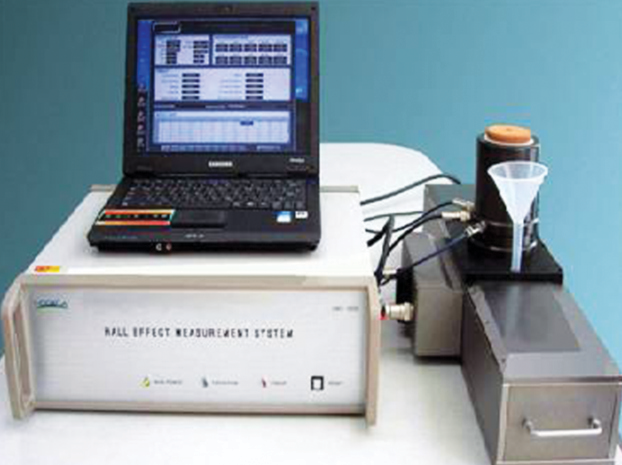A Hall measurement system is a scientific instrument used to measure the properties of semiconductor materials, including their electrical conductivity, carrier concentration, and mobility. The technique is based on the Hall effect, which occurs when a magnetic field is applied to a current-carrying material, resulting in a voltage difference perpendicular to both the magnetic field and the current direction. A Hall measurement system typically consists of a magnet, a sample holder, a temperature controller, and a measurement unit. The sample is placed in the magnetic field, and a small electrical current is passed through it. The resulting voltage across the sample is measured, and from this, the carrier concentration and mobility can be calculated. Hall measurement systems are widely used in the semiconductor industry for quality control and research purposes, as well as in academic and government research institutions. They are also used in the development of new materials for use in electronic devices, such as solar cells, transistors, and LEDs.
Phone
+91-9310249352 / +91-8605504814
+91-9310249352 / +91-8605504814
Hall Mesurnment System

